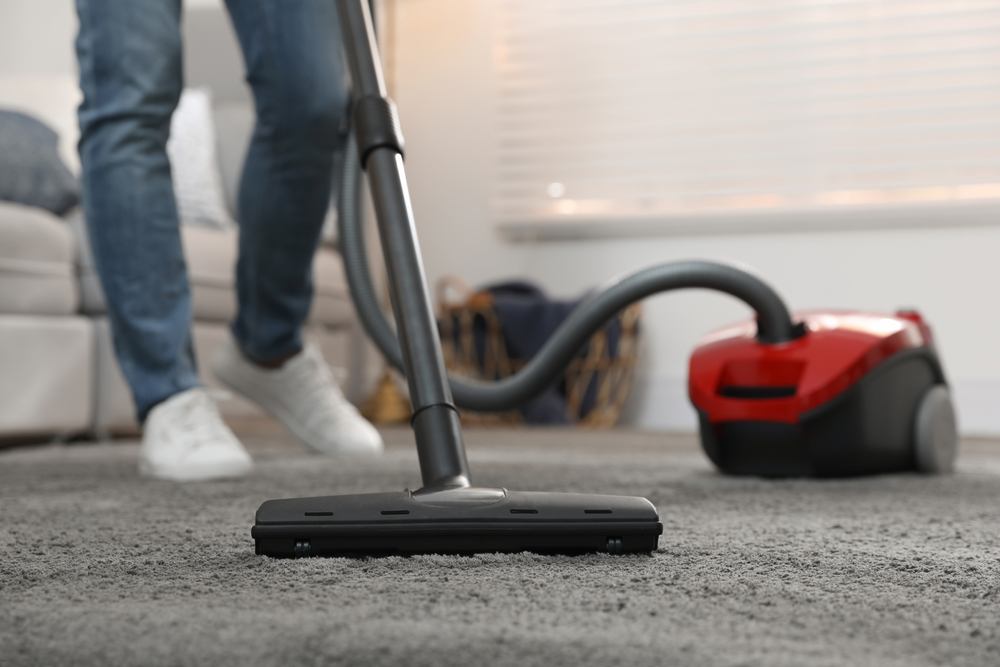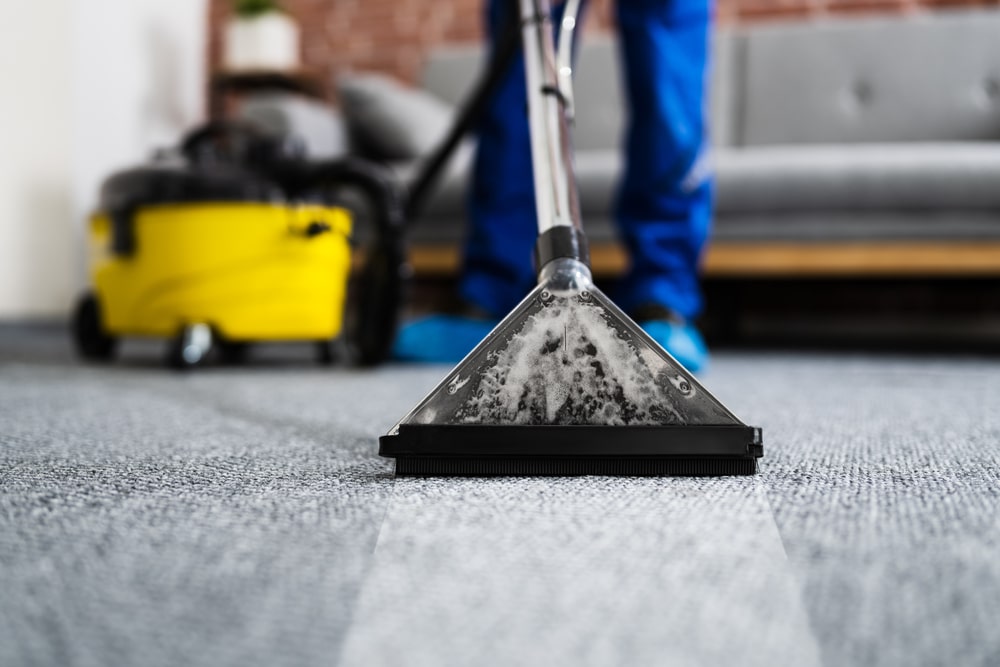Ever stepped on a wet carpet and felt your spine shiver? What’s worse is the smell. The smell of wet carpet isn’t just a stinky situation; it’s unsafe. Why? Carpet is good at harboring water, leading to the growth of mold and other harmful bacteria.
Keep reading to find out how you can reverse the effects of wet carpets and restore your home to a fresh, moisture-free space.
Table of Contents
What Causes Wet Carpet Odor?
A smelly carpet is a sign that mold or mildew is growing somewhere within the fibers. Mold loves to grow in dark, damp conditions, which makes your carpet the perfect breeding ground for this unwelcomed fungus.
If mold or mildew starts to grow, your flooring or carpet becomes susceptible to premature rot and decay. Plus, mold poses a huge health threat to you and your family.
What Types of Carpet Hold More Odor?
Not all carpets are the same. Some carpets hold more water than others. Wondering how your carpet responds to odors? Take a look at some of the most popular types of carpet and how each one holds water and odor:
1. Nylon
Nylon carpets are known for their durability and resistance to stains. However, they can retain water, leading to an unpleasant odor.
2. Wool
These carpets are made of a natural fiber that’s less likely to retain water and odors. Still, they need to be treated fast before water becomes a problem.
3. Polyester
Polyester carpets are luxurious and beautiful but aren’t as durable as nylon fibers when it comes to water retention.
4. Olefin
These types of carpets are moisture-resistant, making them less prone to mold growth and odor issues.
Why Is It Important to Take Care of the Wet Carpet Smell?
Mold growth is a serious issue when it comes to a waterlogged carpet. When mold grows, it can compromise the integrity of your flooring and pose serious health risks. Breathing in mold spores for an extended period can lead to a weakened immune system.
If your carpet is wet or emits a strange, musty odor, contact the professionals at Cleanup & Total Restoration. Our team is specially trained to tackle all types of water damage, no matter the severity.
 How to Treat Water-Damaged Carpet
How to Treat Water-Damaged Carpet
Wet carpet must be dried as fast as possible; otherwise, you might need a full carpet replacement if it sits for too long. Start by cutting off the water source and preparing the room. You don’t want anyone stepping on the carpet while it dries.
Take a rag or towel, and dry the carpet’s surface. You can also use a wet vacuum to suck up the remaining moisture at the carpet’s surface level. However, this should be left to a professional. Open some windows to circulate the air as much as possible. A dehumidifier will come in handy as well.
Finally, remove the top layer of the carpet to expose the padding. It needs time to dry.
Tips for Eliminating That Wet Carpet Smell
While using industrial-grade equipment is the only way to effectively remove a wet carpet smell, there are a few things you can do for temporary relief.
Try using a deodorizer such as vinegar or essential oils. You can also sprinkle baking soda on top of the affected area. Once you let the baking soda sit for a few hours, you’ll notice a decrease in the smell—however, that smell will return.
Will the Wet Carpet Smell Go Away by Itself?
No. The only way to get rid of a carpet odor entirely is if you work to remove it. The best way to remove carpet odor is with a professional’s help. Get rid of a smelly, wet carpet by calling the technicians at CTR.
Restore Your Water Damaged Carpet With CTR
A wet carpet is more than a nuisance. It’s a health hazard. Get a full water extraction service when you call the team at CTR. We promise to arrive at your property within 60 minutes of your initial phone call. Don’t let the effects of a waterlogged carpet ruin your home. Contact the restoration team Southern Idaho residents trust.



 How to Treat Water-Damaged Carpet
How to Treat Water-Damaged Carpet




